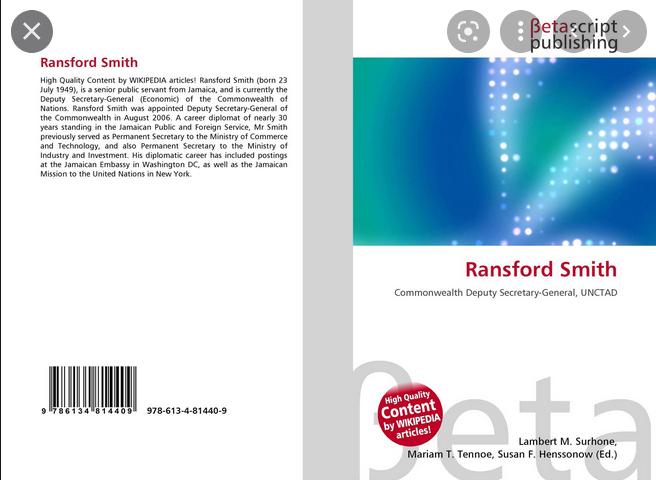Africa-Press – Gambia. The Commonwealth of Nations has no founding treaty or governing constitution. It is headquartered at Marlborough House in London and has now been headed for the better part of a century by a 95-year-old monarch. This rather unique association of states has been variously described as a “global good” and as an “amiable delusion”.
This article will recall important milestones and achievements on the journey from empire to the modern Commonwealth. It will draw attention to the fact that the struggle for relevance has been both a past and present feature of the Commonwealth. Importantly, it will maintain that the Commonwealth’s responsiveness to the development needs of the majority of its members will be the key determinant of its continued and future relevance.
A related conclusion is that the Commonwealth’s value and relevance will almost certainly be informed decisively by the nature of the choices being made at this time regarding resources and priorities.
Leadership of the Commonwealth will also self-evidently be an important factor. Headlines Delivered to Your Inbox Sign up for The Gleaner’s morning and evening newsletters. FOUNDING AND COMPOSITION
Current members include two G7 countries – United Kingdom and Canada; five G20 members; 13 Least Developed Countries; 32 small states; and several newly industrialising economies. The population of the Commonwealth is over 2.4 billion.
The overwhelming majority of Commonwealth members are, in fact, republics – 34; while five have their own monarchs and the remaining 15 – including Jamaica – retain the British monarch as Head of State.
The current Head of the Commonwealth is Her Majesty Queen Elizabeth II. It must be noted that this is not a constitutional requirement, but the choice of members. Four years ago, in 2018, meeting in London, Commonwealth Heads of Government agreed that in the fullness of time the “next Head of the Commonwealth shall be His Royal Highness Prince Charles, The Prince of Wales”.
A defining characteristic of the modern Commonwealth has been its quite rapid growth in membership from a small group of white self-governing dominions in colonial times, to the current “free association” of independent states.
Interestingly, it will be noted that while almost all Commonwealth members were at one time or other directly or indirectly ruled by Britain, this is not the case with two members. Just over a decade ago, in 2009, Rwanda was admitted as a member, and some time before that, in 1995, Mozambique became a member.
An expanding membership, and the establishment of an institutional secretariat in London several decades ago, have served to deepen the changing nature and character of the Commonwealth. These developments reinforced the notion of the emergence of a modern Commonwealth. FROM COLONIAL CLUB TO INSTITUTION-LIGHT
A great deal of caution and institutional restraint attended the birth of the Commonwealth. The Commonwealth began life as a consultative forum confined to a small club of like-minded leaders. In fact, Commonwealth leaders, even as they reluctantly established, in 1965, a Secretariat, mainly at the prompting of developing members, reiterated the character and role of the Commonwealth as being a forum to “exchange opinions in a friendly, informal and intimate atmosphere”. They emphasised then as well that the Commonwealth was “not a formal organisation”. They also chose to make clear, according to the terms of the Agreed Memorandum on the Commonwealth Secretariat, that the newly established Secretariat would be required to not “propagate any particular sectional or partisan points of view” and to not “touch upon the internal affairs of a member country or disputes or serious differences between two or more countries”.
This caution and restraint would have effectively neutered not just the Secretariat, but the Commonwealth as a whole, had it lasted. COMMON VALUES: THE GLUE THAT BINDS?
Commonwealth members are expected to profess and model a set of fundamental principles. This common value system includes observance of the rule of law, democratic processes, independence of the judiciary, protection and promotion of fundamental human rights, and the provision of equality of opportunity. Over time, these fundamental values have been embodied in instruments such as the Singapore Declaration of 1971, the Harare Declaration of 1991, and the Affirmation of Commonwealth Values and Principles, adopted in Port of Spain in 2009. These instruments were subsequently brought together in an overarching document, adopted in December 2012, The Charter of the Commonwealth.
Earlier, attention was drawn to the informality, caution and even reticence that initially seemed destined to be the Commonwealth’s lot. But the historical moment called for exactly the opposite. This earlier period was an era of growing anti-colonial fervour and of widespread awakening to political, civil, and human rights!
The first shot across the Commonwealth bow was the strong opposition of developing members, led by Africa and the Caribbean – and joined by Canada – to apartheid South Africa’s continued membership in the Commonwealth. Then, in the immediately succeeding years, the developing members of the Commonwealth were resolute in opposing the unilateral declaration of independence (UDI) by the minority regime in Rhodesia. The resulting high-profile global advocacy, and other forms of support by some Commonwealth members, contributed significantly first to decolonisation in southern Africa, and then ultimately to the collapse of apartheid, and the commencement of majority rule in South Africa.
One writer has described the Rhodesian crisis as having been “a catalyser of the post-colonial transition of the Commonwealth”. At the very least it was a defining juncture: a moment when the moral sentiment, voice, and presence of the post-colonial majority came to the forefront in Commonwealth councils, and this at the same time as the abject failure of its decolonisation policy in southern Africa weakened the stature of the United Kingdom.
This was an assertive role not originally envisaged for the Commonwealth, especially by its leading members; it was a path of activism in the promotion and defence of anti-colonial and other fundamental values, not just in an abstract and general way, but in specific and concrete situations that involved other Commonwealth members, directly and indirectly.
Several years later, in furtherance of this evolution, a quite path-breaking instrument for protecting and promoting Commonwealth political values was created – this is the Commonwealth Ministerial Action Group (CMAG). CMAG uniquely possesses the authority to suspend Commonwealth members, or to recommend to Commonwealth leaders that a member of the Commonwealth be expelled. Constituted by Commonwealth Heads of Government in 1995, and now comprising nine foreign ministers, including the Commonwealth Chair-in-Office, CMAG is charged with monitoring and addressing situations likely to lead to “serious or persistent” violations of Commonwealth values by a member state.
It is important to recognise as well that the Commonwealth also has embodied within response capabilities an arsenal of ‘soft powers’. They include the use secretary general’s good offices, the deputing of eminent persons in advisory or meditating roles, and the provision of assistance to encourage restoration of democracy. While some critics have maintained that more should be done in promotion and defence of Commonwealth political values – which encompass issues such as the separation of powers, rule of law, human rights – it is also true that over the years the Commonwealth monitoring and oversight mechanisms have not at all been mere paper constructs. Several Commonwealth members, including Nigeria, Sierra Leone, Pakistan, Fiji, and Zimbabwe, have been suspended for varying periods. Zimbabwe withdrew from the Commonwealth in 2003. More recently, Maldives withdrew from the Commonwealth in 2016 after CMAG, now the institutional custodian of the Commonwealth’s fundamental political values, had expressed “deep disappointment” over the member’s human rights record. Maldives was readmitted four years later – in February 2020 – after “positive assessment” by CMAG that the reform process under way in the country “aligns with the values and principles of the Commonwealth”.
In recent years, CMAG has acknowledged “expressions of interest” by Togo in joining, and The Gambia in rejoining, the Commonwealth, and has noted that Zimbabwe has applied to be readmitted. At its most recent meeting, in December 2021, CMAG acknowledged progress in processes under way regarding the admission and readmission of members, and “looked forward to welcoming them as members of the Commonwealth once they have demonstrated their adherence to the values and principles set out in the Commonwealth Charter”.
DEMOCRACY AND DEVELOPMENT: THE TWIN PILLARS Against this background, it is easy to forget that Commonwealth values extend beyond the political sphere. But the Commonwealth, an association in which developing countries constitute the overwhelming majority, cannot reasonably nor credibly be impervious to the importance of development.
As far back as 1965, the Agreement to Establish (the) Commonwealth Secretariat mandated the provision of expert and advisory services, and support for new and ongoing initiatives in economic cooperation and education among Commonwealth members. In 1971, the Secretariat’s development arm, the Commonwealth Fund for Technical Cooperation (CFTC), was established.
In high-level documents such as the Singapore and Harare Declarations of 1971 and 1991 – adopted 20 years apart – Commonwealth leaders have repeatedly reaffirmed their commitment to democracy, good governance, sustainable development, human rights, and gender equality. Notably, the view repeatedly expressed, such as in Declarations, adopted in Malta and in Port of Spain, is that the two – governance and development – are intertwined, supportive and mutually reinforcing.
Indeed, Democracy and Development are the twin pillars around which successive Commonwealth strategic plans and assistance to member states have been structured over several decades.
– Ransford Smith is former deputy secretary general of the Commonwealth. He recently spoke on the Commonwealth and its relevance in a lecture series hosted by the Institute of International Relations, St Augustine, and the Diplomatic Academy of the Caribbean. This is first of a three-part article based on his talk. Send feedback to
For More News And Analysis About Gambia Follow Africa-Press






